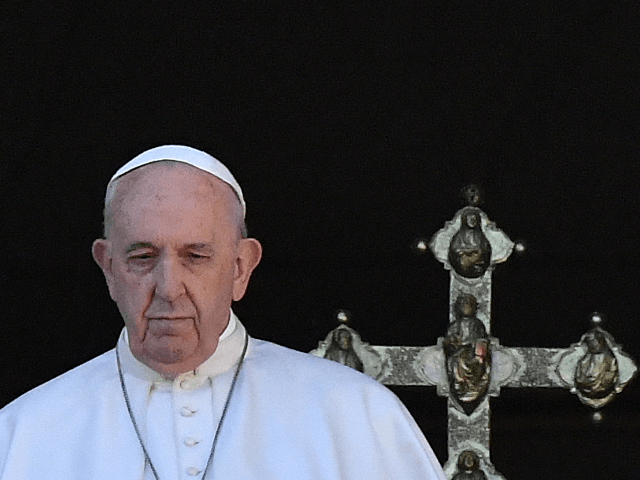ROME — Pope Francis has decried the resurgence of populism and nationalism on the world stage, calling instead for greater multilateralism.
Our own days seem to be showing “signs of a certain regression,” the pope writes in a new encyclical letter titled Fratelli Tutti (Brothers All). “Ancient conflicts thought long buried are breaking out anew, while instances of a myopic, extremist, resentful and aggressive nationalism are on the rise.”
“In some countries, a concept of popular and national unity influenced by various ideologies is creating new forms of selfishness and a loss of the social sense under the guise of defending national interests,” the pontiff writes in the 43,000-word letter, which was released on Sunday.
As he has done on other occasions, Francis attributes renewed nationalist sentiment to growing xenophobia, narrowmindedness, and selfishness.
There are those “who appear to feel encouraged or at least permitted by their faith to support varieties of narrow and violent nationalism, xenophobia and contempt, and even the mistreatment of those who are different,” the pope laments. “Faith, and the humanism it inspires, must maintain a critical sense in the face of these tendencies, and prompt an immediate response whenever they rear their head.”
“Narrow forms of nationalism are an extreme expression of an inability to grasp the meaning of… gratuitousness,” Francis writes. “They err in thinking that they can develop on their own, heedless of the ruin of others, that by closing their doors to others they will be better protected.”
“Immigrants are seen as usurpers who have nothing to offer,” he adds. “This leads to the simplistic belief that the poor are dangerous and useless, while the powerful are generous benefactors.”
“Sadly, politics today often takes forms that hinder progress towards a different world,” namely, populism.
“Lack of concern for the vulnerable can hide behind a populism that exploits them demagogically for its own purposes, or a liberalism that serves the economic interests of the powerful,” he writes.
The attempt to see populism as a key for interpreting social reality is “problematic,” Francis asserts, because it “disregards the legitimate meaning of the word ‘people,’” which necessarily entails “communitarian aspirations” and “shared goals that transcend their differences.”
The promotion of “popular” leaders “can degenerate into an unhealthy ‘populism’ when individuals are able to exploit politically a people’s culture, under whatever ideological banner, for their own personal advantage or continuing grip on power,” he states. “Or when, at other times, they seek popularity by appealing to the basest and most selfish inclinations of certain sectors of the population.”
“This becomes all the more serious when, whether in cruder or more subtle forms, it leads to the usurpation of institutions and laws,” he warns.
While the pope does not name names in his denunciation of the rise of an “aggressive nationalism,” recent years have witnessed a resurgence of nationalism in Europe, Asia, the Americas, and elsewhere.
“Over the past years, rising nationalism is seen everywhere and in everything,” declared a 2018 essay in the Journal Ethnopolitics.
“From the election of Donald Trump to Brexit, the nationalist policies of the Japanese Prime Minister Shinzō Abe, his Indian counterpart Narendra Modi and the Turkish president Recep Tayyip Erdoğan, the success of far-right parties in Italian, German and Austrian elections in 2017 and 2018, nationalism appears to be on rise globally,” it declared.

COMMENTS
Please let us know if you're having issues with commenting.